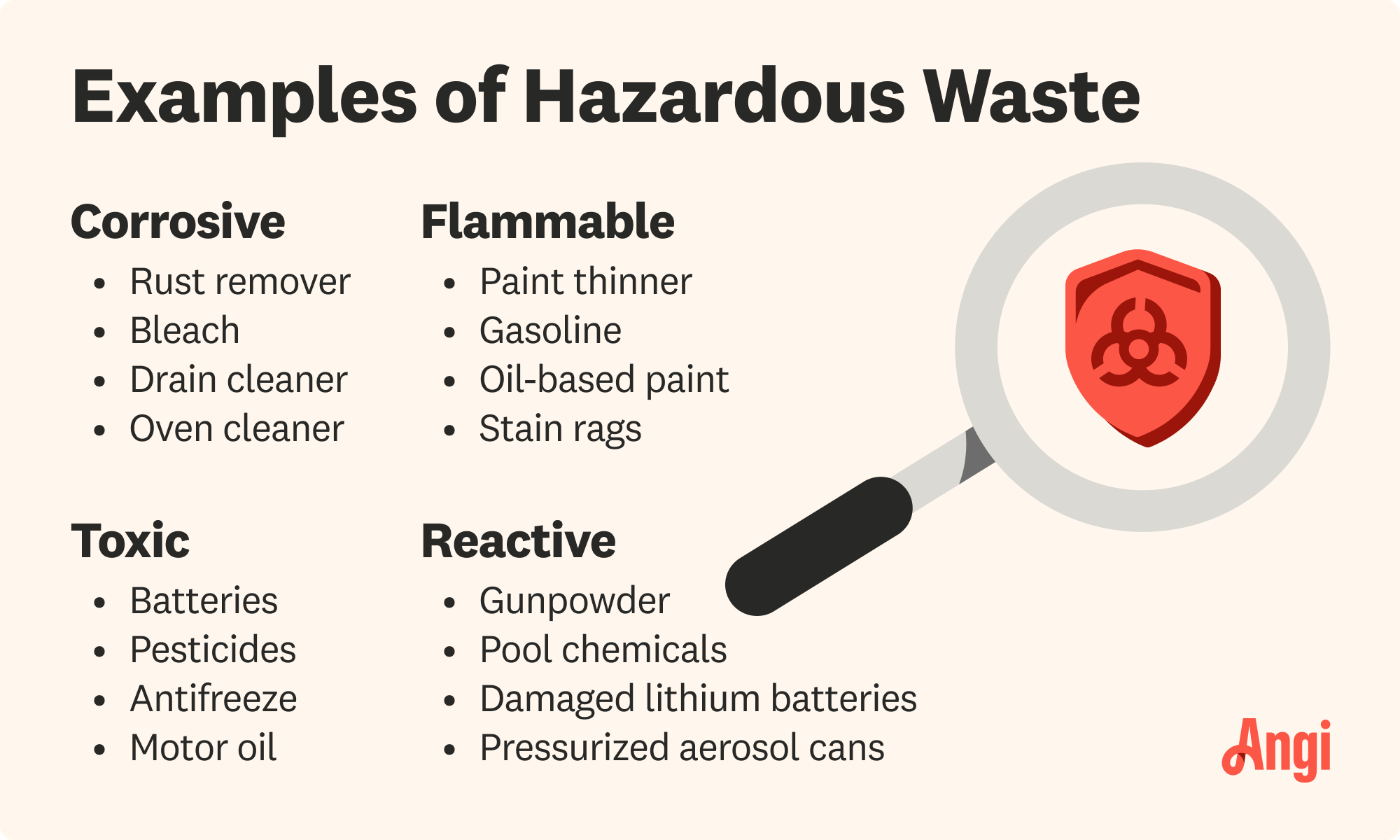
Get clear answers on oil tank removal costs, including average prices, key factors, and ways to save. Learn what impacts your project and how to budget.
You can avoid antifreeze safety issues with a few simple tips


If you do your own vehicle maintenance, eventually you'll have to change your antifreeze. This highly toxic chemical is vital to keep a vehicle's engine from overheating or freezing, depending on the weather, and it needs to be handled and disposed of carefully. This guide offers tips on how to dispose of antifreeze safely, including where to take it and how to recycle it.

Antifreeze is necessary for vehicle maintenance, but you should handle it carefully. The primary ingredient in antifreeze is either ethylene glycol or propylene glycol, which are both toxic to all living things. It's typically a bright, fluorescent green or orange with a sweet smell, so it's attractive to children and pets who don't know better.
Antifreeze can cause organ failure, convulsions, and loss of consciousness if ingested. For all these reasons, you should dispose of it promptly and clean up spills as soon as they happen.

Before changing out your vehicle's antifreeze, be prepared with a disposal location. Search online for antifreeze recycling near you, and you'll likely see recycling centers, auto service stations, auto parts shops, and public landfills listed.
Call or check the websites of these locations to see if they accept the type of antifreeze you're getting rid of. If the antifreeze comes from your vehicle, collection sites will almost always consider it used. You can usually drop off your antifreeze at these locations for free. Sometimes, however, you’ll be charged a small disposal fee.
Not all disposal locations recycle. If you find one that does, it’s the more environmentally friendly option. Either way, properly disposing of antifreeze and other materials like bleach is always better than dumping it down a drain or into your yard.

Wear rubber gloves and eye protection to ensure that your skin and eyes don't come in direct contact with the toxic coolant fluid.
Place a large drain pan under your vehicle and open the coolant drain plug. Consult your vehicle's manual to ensure you use a big enough pan. You may also need to flush the radiator system by running clean water through it.

Open your plastic container and place a funnel in the mouth. A wide-mouthed jug will help keep the funnel steady and prevent spills, but you can also have a partner wear proper protection and hold the funnel for you. Carefully lift the drain pan and slowly pour the collected liquid into the container. Screw on the container lid and ensure an airtight seal.
If you accidentally spill any antifreeze on the ground or floor, soak it up immediately with an absorbent material such as kitty litter, sand, or floor sweeping compound. These work better than rags or paper towels, which become saturated too quickly. Once the material has soaked up the antifreeze, use a shovel to transfer it into a sealable container for disposal.
If you spill antifreeze on yourself, scrub it off with soap right away. Antifreeze on your clothes will come out during a regular laundry cycle.

Once you've determined a disposal or recycling location that will accept your antifreeze, place your container or containers in a plastic crate or bag to catch any potential spillage that happens during transport. Secure the container in your vehicle with bungee cords or cables to keep it from tipping.
Whether you don’t have the time or tools or simply don’t want the hassle, you may decide to take your vehicle to an auto mechanic to change the antifreeze. A standard coolant change costs $100 to $200 and will include disposal of the used antifreeze. Or, you may be comfortable with changing the antifreeze in your vehicle but not transporting it. In that case, a local junk removal service may be able to take it off your hands along with any other stuff you’re cleaning out of your garage.
If you want the pros to dispose of antifreeze as part of a bigger garage or household clear-out, professional junk removal costs an average of $240. However, you could pay anywhere from $100 to $1,000, depending on the quantity and type of junk you have, your location, and whether there are any specific local disposal fees or permits required. Disposing of hazardous waste costs more than regular household trash because pros need to take extra precautions and find the right disposal facility for the product.
From average costs to expert advice, get all the answers you need to get your job done.

Get clear answers on oil tank removal costs, including average prices, key factors, and ways to save. Learn what impacts your project and how to budget.

Mattresses are considered hazardous waste, so you’ll likely have to pay disposal fees. Use this guide on mattress removal costs to see what your total will be.

Need to get rid of paint, solvents, or other chemicals? Use this guide on hazardous waste disposal costs to see what professional removal will cost.

There are tons of things you can recycle instead of throwing away, just be sure to follow proper protocol.

Stains and paints are considered hazardous waste. Learn how to dispose of wood stain safely and the best way to store leftovers between your DIY projects.

Burning is an efficient way to dispose of yard waste, but it comes with risks. Follow the tips and steps in this guide to learn how to safely burn yard waste.